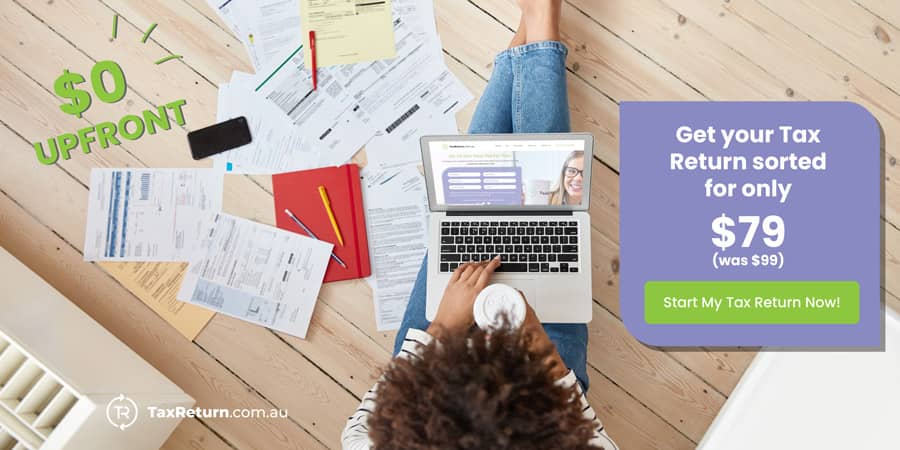[Updated April 19, 2023]
Cryptocurrency is not for everyone because of its many complexities. And adding crypto taxes into the conversation can make it even more complicated. But it doesn’t have to be. We’re here to help guide you in everything you need to know, especially when it’s time to file your Australian cryptocurrencies tax with the Australian Taxation Office (ATO).
But first, let’s get into a bit of cryptocurrency. This landscape is quite diverse, and there are now over 1,600 cryptocurrencies listed. However, since the start of the phenomenon, two have remained the most popular: Bitcoin and Ethereum. Of the two, Bitcoin is considered the principal crypto – the first to be ever launched in 2009. It began the whole crypto movement.
And because of the popularity, more and more traders joined in. Those who understand blockchain technology created their very own cryptocurrencies, too. The entire system has become more prominent and eventually garnered a ton of proponents. Quickly, the ATO developed guidance on crypto taxation. And just five later after the introduction of Bitcoin, this guidance went into law on December 17, 2014.
How Does the ATO Know about Your Crypto Transactions?
According to the Australian Taxation Office, about 500,000 to a million Australians have cryptocurrency. To further determine the numbers, the ATO began collecting records in late 2019 to ensure people, including those who trade cryptocurrencies, pay their taxes correctly. The office has worked with Australian cryptocurrency designated service providers (DSPs) to collect records regularly regarding brokerage services and payment facilitators. DSPs also include cryptocurrency exchanges and ATM providers for bitcoin.
Collection of data by the ATO involves the following records:
- The details of the digital currency owner, including their name, address, date of birth, phone number, email address, date of birth, and account information
- Account details, such as the status of the account (whether it is open, lost, or suspended), currently connected bank accounts, wallet address, unique identifier, and transaction date and time
The data collection process denotes that all cryptocurrency transactions you make leave an electronic record. This record is used by the DSP in compliance with the ATO’s taxation guidelines.
Therefore, when it is time for you to lodge your tax return, the ATO will look at your report and compare it with the records they have collected from the DSP. This process ensures the ATO that you are honest, especially in disclosing your crypto activities. It is important to check that you are paying the right amount of taxes because the ATO knows if your tax report does not match your crypto transactions.
How Does Tax Work for Cryptocurrency Traders?
In early March 2020, it was reported that about 350,000 Australians received an email from the ATO. Usually, tax authorities only go after those with large amounts of underreported taxes. It seemed, though, that the ATO appeared to focus on every single transaction, even small ones. This puts significant emphasis on the fact that the ATO is demanding accurate tax reporting for everyone, including crypto traders and investors.
In Australia, it should be noted that cryptocurrencies are subject to two types of transaction, depending on certain circumstances. Crypto traders may have to pay either capital gains tax (CGT) or ordinary income tax – or both.
Generally, you do not have to pay for income tax or GST if you do not run a business. You simply pay for the item you purchased using cryptocurrency, such as Bitcoin. However, cryptocurrencies are regarded as CGT assets, which means that you need to pay for this certain tax whenever a transaction takes place using a cryptocurrency.
There are certain instances, though, where your transactions are exempt from CGT, including:
- You use cryptocurrency to purchase goods and services for yourself. For example, you book a hotel online using Bitcoin.
- The transaction is less than $10,000.
Meanwhile, if the transaction costs more than $10,000, CGT will apply. This particular tax is based on the value of the crypto you used during the acquisition and the value during disposal.
If you have held the cryptocurrency for more than 12 months before selling it, you qualify for a CGT discount. These discounts include:
- 50% for Australian residents, including those who work as a partner in partnerships
- 33.33% discount if the taxpayer complies with super funds and specific life insurance companies
For foreign residents, this 50% discount does not apply to capital gains made after May 8, 2012. If the asset has been held for 12 months (or less), it will not have any CGT discount.
There are certain events that are considered non-CGT, such as income from crypto decentralised finance (DeFi). These events are thought to be ordinary income and, therefore, will be taxed as part of the total assessable income with the rates implemented by the ATO.
While you may have to pay the CGT tax, your transactions are exempt from goods and services tax, starting July 1, 2017.

The ATO’s Standpoint
With many traders buying or obtaining smaller cryptocurrencies when they are worth thousands of AUD, the ATO relies on records to ensure taxpayers comply with their tax obligations. At the time of publishing, 1 BTC is around $69,400+. But let us say that you obtained it when it was worth $10,000. You then spent or sold it after the value increased to $20,000. It’s possible that you will need to pay $10,000 as part of your taxes. The profits and losses are what the ATO is after.
According to the ATO, it does not view Bitcoin and other cryptocurrencies as Australian or foreign currency. They are not considered money, either. Instead, these digital currencies are viewed as property. For CGT purposes, cryptocurrencies are assets, and therefore CGT will apply once you:
- Sell a cryptocurrency
- Send a cryptocurrency as a gift
- Trade crypto for another fiat or crypto
- Convert to fiat currency, such as Australian dollars
- Buy goods and services
You can either be taxed as an individual or a business (professional). It’s essential that you know your classification under the ATO’s standards. This is the first step towards determining how you will be taxed as someone engaging with cryptocurrencies.
As an individual, you are considered an investor if your primary goal or activity is buying and selling Bitcoin or other cryptocurrencies. You are mainly investing for yourself, which means your income will be from capital gains, airdrops, and forks.
Most people who engage with crypto activities are classified as investors. Therefore, they have to pay for CGT.
On the other hand, you are considered a trader or a business (also known as a professional) who conducts a more serious transaction. The primary purpose is to earn income through crypto exchanges. If you buy and sell to gain profits, the ATO will tax you as a business. It’s quite complicated because trading is not just about frequency and volume. You can still be a trader despite having fewer crypto activities than an individual or investor.
This classification should be on your part, where you either directly or indirectly suggest you are trading for business purposes. The ATO will also perform an assessment to determine if you do fit this classification.

Crypto Activities and Their Tax Implications
Buying and selling are the main actions crypto traders and investors perform. Certain transactions trigger a CGT event while others remain untaxed:
- Buying CryptoWhen you buy crypto using Australian dollars or any other fiat currency, you are not required to pay taxes for it.However, it would help if you still documented or recorded the amount you paid for buying the cryptocurrency. Include the date and time of the purchase, as well. These pieces of information may be used for your capital gains calculations.
- Selling CryptoIf you sell crypto to earn fiat currency, it triggers CGT. Let us say that you purchased 1 BTC five years ago for about $5,000. If you sell the BTC now for $12,000 and cash it out, you will pay $7,000 of CGT.
- Trading Using CryptocurrenciesBuying one crypto with another crypto is also a CGT trigger. For example, you buy 1,000 ETH with 1 BTC. This BTC was from five years ago and was valued at $1,000. During the time of purchasing 1,000 ETH, your BTC is already worth $10,000. This means that your capital gain for this transaction is $9,000.
- Crypto TransfersIf you plan to move your cryptocurrency from one wallet to another, it is mostly non-taxable. The same rule applies to exchanges made to another wallet. All the relevant transactions you had control over are non-taxable.
- Buying Goods with CryptoIf you use Bitcoin or any other cryptocurrency for purchasing goods and services, they may be excluded from your taxes. However, the amount should not exceed $10,000. If the cost basis does go over $10,000, personal use exemption will not apply. However, you are taxed for the capital gains as normal.
- AirdropsIf you receive coins through an airdrop as part of a crypto project’s way of promoting itself, you may be taxed for it. You are required to report the airdrop where the coins are part of your ordinary income. The amount reported will become the cost basis for the airdrops.For instance, you receive 1,000 coins from a fairly new crypto project. During that day, this cryptocurrency was worth $0.10 per coin. You should report $100 as part of your ordinary income.What happens if the price of this crypto goes up in about five months? If you sell the airdropped coins, you will report the new value as a capital gain. If the new price is $0.50, selling 1,000 coins will mean paying $400 CGT.
- ForksAlso known as chain splits, you may be charged if one blockchain splits into two (or more) depending on the type of fork. In most cases, the original chain still functions like normal. There is zero basis on the new forked asset, but you will still pay CGT when disposing of the new one. There is no impact on the first or original asset and no ordinary income, as well.Meanwhile, if the original chain no longer works, the new assets will have a zero basis. CGT applies if you dispose of the new ones. The primary chain is considered a full capital loss. No ordinary income is reported.As an example, we have the case of the Ethereum split, which took place in July 2016. There were two assets now: Ether (ETH) and Ether Classic (ETC). ETC still keeps its rights with the original chain, so it is considered the continuing asset. On the other hand, ETH is the new one, created after the chain split. Therefore, ETH takes on a zero basis.
Is Cryptocurrency Taxed Differently vs Other Investment Incomes?
The ATO considers cryptocurrencies as assets. Therefore, it expects you to pay capital gains tax on any gains from transactions involving cryptocurrencies. When you dispose off or swap or exchange cryptocurrencies, the transactions result in CGT event. In a cryptocurrency swap, the difference in value would result in capital gains if the cryptocurrency you receive has a higher value.
Just like other assets, if you generate a profit when you sell cryptocurrency, the profit is considered capital gains. You have to pay capital gains tax on it as you would for other assets. The tax rate would be the same as your income tax rate.
Cryptocurrency Tax Reporting
The most important thing to remember when you’re reporting your tax is to include every crypto transaction you made from July 1 to June 30. Lodging your own tax return means that you should have it completed by the last day of October. However, if you have an accountant or tax agent helping you, you have until March 31 the following year.
As usual, you need to keep certain records of your crypto activities, which should give the following information:
- Transaction date
- Crypto value at the specified date of transaction
- Purpose (personal use, gift, etc.)
- Details of the receiver or other party involved (can simply be the crypto wallet address)
We recommend keeping all receipts, exchange records, agent invoices, and digital keys or wallet records as evidence. Lodging your crypto tax is the same as your regular income tax.


